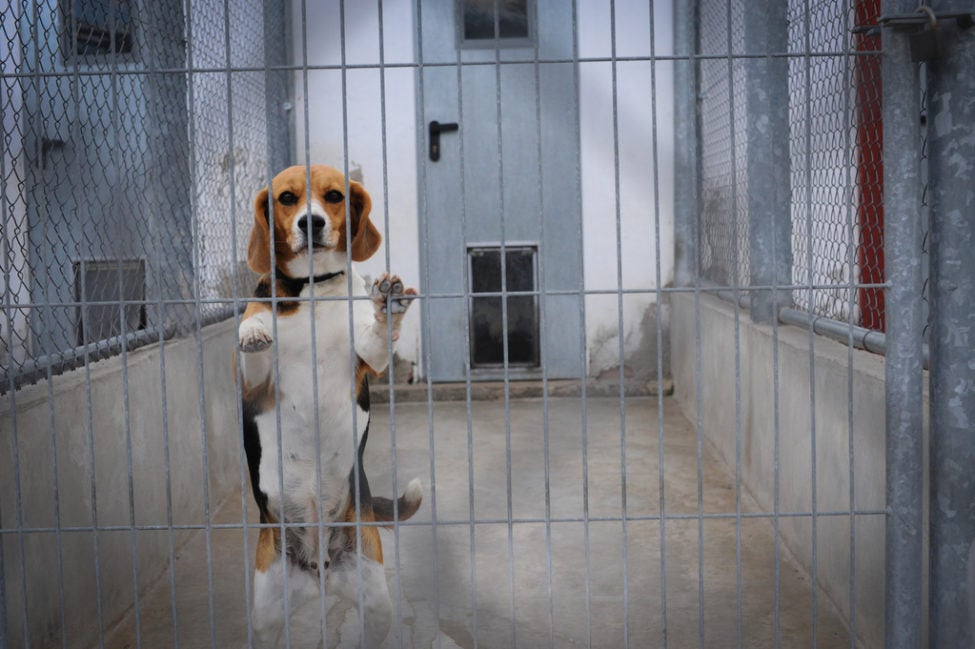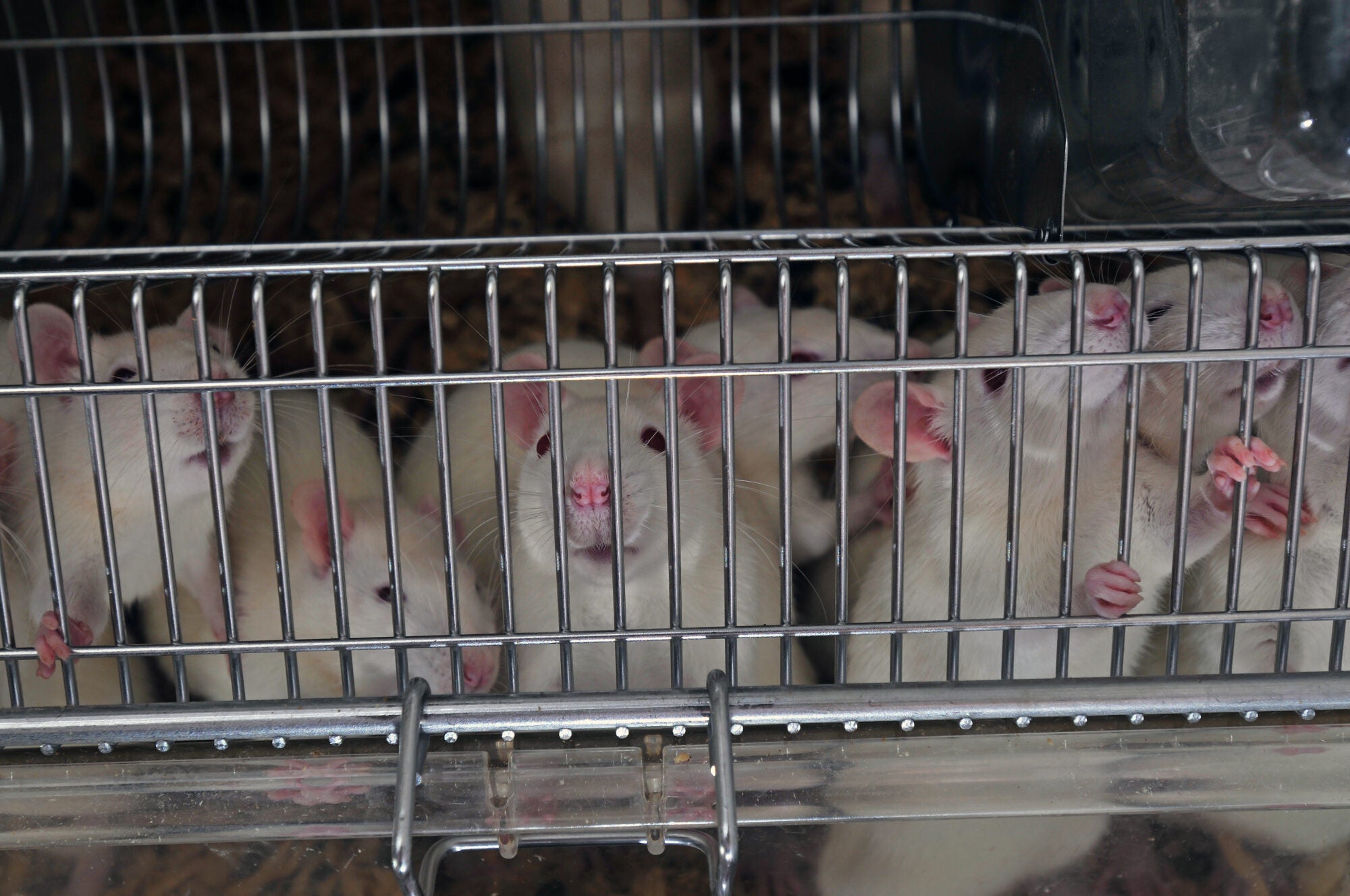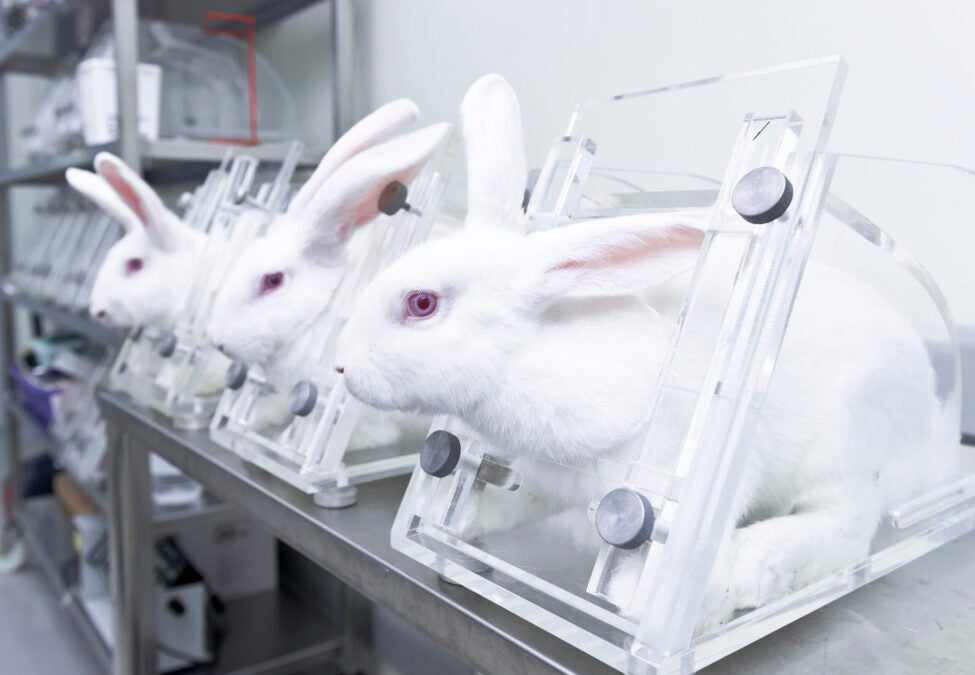
RIO DE JANEIRO—Humane Society International is excited to announce that animal-free safety assessment of school supplies is now possible in Brazil. Previously, rats and rabbits were routinely used to test paints, glues and other school supplies. HSI worked together with Brazilian stakeholders to change the requirements for school supplies safety, avoiding the use of many animals.
Although several non-animal methods have been accepted in Brazil since 2014, due to lack of clarity animals are still routinely used. Non-animal assessment of school supplies first required changing the Brazilian National Standards Association (ABNT) norm for school articles safety to allow assessment of the product based on existing information on its ingredients. Another important change is the requirement that animals are used only as a last resort and only when technical justifications are present. These unprecedented changes have been codified in ABNT NBR 15236:2021, published on Sept. 9.
The second required change was for the registering authority to refer to this new norm, which was published on Oct. 8 in the Inmetro Ordinance number 423. This makes the ABNT 15236:2021 the mandatory requirement for toxicological safety assessment and school supplies compliance in Brazil.
These regulatory changes are the result of a joint effort and HSI appreciates the discussions involving different stakeholders and the important support provided by the National Council for the Control of Animal Experimentation (CONCEA).
“These apparently simple changes ensure child safety while avoiding the unjustifiable use of many animals in safety assessment of school supplies in Brazil,” said Dr Bianca Marigliani, HSI’s science advisor. “These changes also set the precedent for the kind of regulatory clarity that is needed to finally implement non-animal methods in chemical safety assessment in Brazil and bring us closer to regulatory harmonization with other countries.”
ENDS
Media Contact: Bianca Marigliani: bmarigliani@hsi.org; +55 11 97635-6068
Additional Information:
According to Brazilian regulations, all school supplies with more than 3 grams of paints, glues, gouaches, watercolors and powered material per unit of use must have their safety confirmed regarding acute oral toxicity. Those susceptible to skin contact must also have their safety confirmed for skin irritation. According to the previous version of the ABNT 15236 (Amendment 1, published in May, 2020), acute oral toxicity and skin irritation could be assessed by in vivo or in vitro methods, which means the laboratories were free to choose between testing on living animals or using alternative methods, in these cases, cell cultures. In addition, in Brazil safety testing has traditionally been performed on finished products, which is expensive, time consuming and has significant limitations, mostly counting on animal testing.
The Research and Toxicology Department of HSI in Brazil identified that ABNT Brazilian Norm 15236:2020 was in disagreement with:
- the Three Rs principle, which stands for reduction, refinement and replacement of animal use;
- the Environmental Crimes Law (Law number 605/1998), which considers it a crime to use living animals for scientific purposes when there are alternatives; and
- the Normative Resolution number 18 of the CONCEA, which recognized alternative methods for different endpoints, including an alternative (non-animal) method for skin irritation, and with a five-year deadline for mandatory replacement of the animal method, ended in September, 2019.
Aware of the possibility of an unjustified and wrongful use of animals for conformity assessment of school supplies, HSI managed to engage CONCEA and ABNT on the discussion to change the ABNT 15236 norm. ABNT organized a series of online meetings with HSI and CONCEA members, representatives of laboratories and school supplies industries and other stakeholders to discuss HSI suggestions for changing the ABNT requirements for safety assessment of school supplies. After two rounds of public consultation, HSI’s suggestions were accepted and ABNT standard 15236:2021 was published on Sept. 9, 2021.
The main changes by endpoint are the following:
- for both acute oral toxicity and skin irritation, the ingredient-based safety assessment is the recommended strategy.
- for acute oral toxicity, in vitro methods can be used if it is not possible to perform ingredient-based safety assessment, and in vivo methods are only allowed as a last resort and when there is technical justification (e.g. sample incompatibility with the in vitro test).
- for skin irritation, an integrated approach on testing and assessment (IATA) must be followed, if new tests are needed, in vitro methods can be used, and in vivo methods are only allowed as a last resort and when there is technical justification.
The ABNT 15236:2021 is now cited by the consolidated version of the Inmetro Ordinance number 423, which determines the requirements for conformity assessment of school supplies. This makes the ABNT 15236:2021 the mandatory requirement for toxicological safety assessment and school supplies compliance in Brazil. The changes made to the ABNT 15236 ensure child safety while guaranteeing the use of animals as the very last resort, which can prevent the unjustifiable use of many animals in the safety assessment of school supplies.



